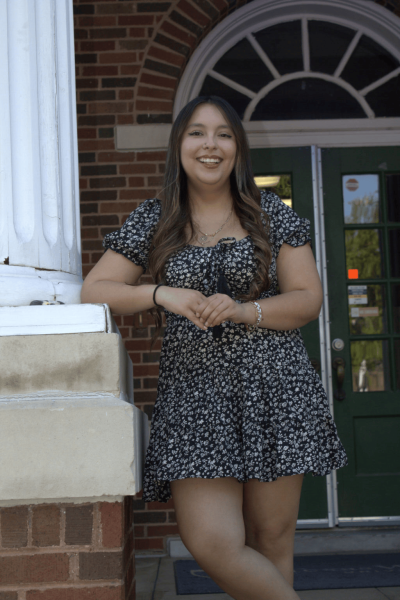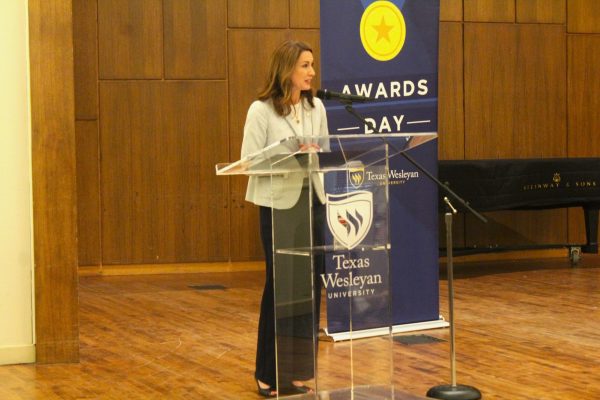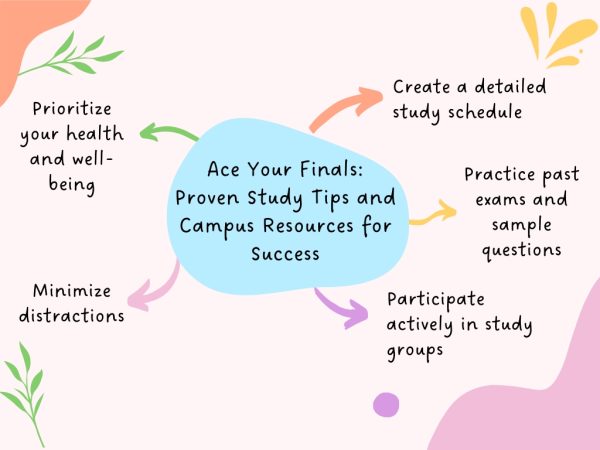Students with physical disabilities struggle with accessibility on campus
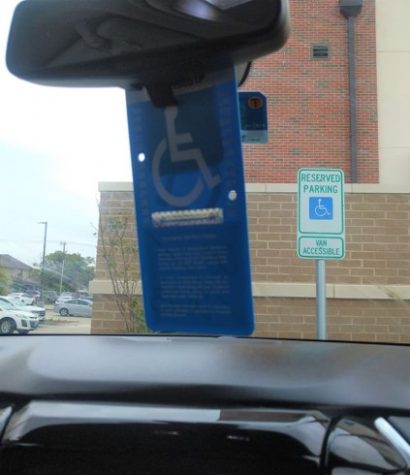
Despite efforts to make the school accessible to students with physical disabilities, many students still struggle with access.
Anna Somodevilla, a junior psych major and resident on campus, said that the issue she faces as a student using a manual wheelchair is something that the school can’t really fix, such as the various steep hills around campus.
“I had classes in the basement of the library and I had to miss some of them because the elevators didn’t work or they had to move my classroom. So I would say planning on different accommodations or to think a little farther ahead, rather than panicking and changing things around last minute,” Somodevilla said.
She said she’s always around her friends because they’re always willing to help her if need be and she mentioned Chelsea Sepolio as a staff member who helped her a lot in the past when the library elevators were suddenly not working again.
“She pushed me up all the hills and got me back here, so she was just really sweet about that. So I know Chelsea is hands-on ready to help me in any way, which is really nice. And then just knowing that I have friends that I can be like, ‘Yo, I need help.’ Whether it’s texting them, or if they’re already here, they’re like, ‘Alright, cool, let’s go, I’ll help you.’” Somodevilla said.
Kye Lewis, president of SGA and senior technical theatre major, said they had trouble walking on certain locations around campus such as various parking lots and residence sidewalks, which they say means there are definitely some improvements that need to be made.
“Having the doors that open automatically, because the library doors are a pain for me to open, especially if I’m carrying stuff. I always say I need a third arm because of my cane,” Lewis said. “There’s definitely a lot of places that are really difficult to walk on, especially when you have a disability, but even just walking, you have to watch yourself.”
Where Somodevilla had mentioned having good back-up plans as a means to solve one issue of safety for students with disabilities on campus, Lewis said they believed that Disability Services needed to make themselves more known.
“I didn’t even know about them until this year. I’ve gotten accommodations for things like my heart and walking with a cane. A lot of the people I’ve talked to on campus are really accommodating,” Lewis said.
Lewis said that one of SGA’s initiatives is planning to meet with the City of Fort Worth Council soon to see what ways certain spots on or around campus could be improved.
“We’re going to have it to where we can map out every single thing that could be problematic and see how we can either re-cement or we put extra dirt in [holes around campus] or maybe plant something,” Lewis said.
Head of facilities, Brian Franks, wrote about how buildings and parking lots on campus are built to give every student the full Texas Wesleyan experience.
“Our Facilities team is always monitoring parking lot conditions and completing restorations based on condition and accessibility compliance,” Franks wrote. “These spaces [in front of many of the buildings on campus] are available to students with the proper disabled parking placard, regardless of whether the lot is designated for faculty or staff use.”
Franks provided resources that could help disabled students on campus if they need more assistance than provided. “In most buildings, ramps and/or elevators are provided. In others, services for disabled students are available,” he wrote.
He encouraged students who need more assistance to call the following numbers:
- Security at 817-531-4911 for rides or general assistance
- Facilities at 817-531-4252 for concerns about the safety of a space on campus
- Disability Services at 817-531-7565 for students with disabilities who would like to request accommodation
Franks also encouraged them to meet Dr. Micheal Ellison, professor of counseling and director of disability services since 1995.
“Obviously, ‘helping more’ is something we can always do. But once we’ve kind of fixed the obvious over the years, finding out that a student has special needs that we haven’t already fixed happens very rarely,” Ellison said.
Ellison added that if for some reason there is not an immediate remedy available, contacting disability services can help students, faculty or staff find a way to accommodate a student with a disability.
“If their classroom is in an inaccessible place for [them], we’ll move the classroom, we’ll move all the students, we’ll move the professor, we’ll make it so that the student on crutches for example, can be accommodated, even if we have to move everyone,” Ellison said.

Angela Castillo is a content producer for the Rambler. She is an English and Mass Communications major who is set to graduate in the Spring of 2022....









![Pippin, played by Hunter Heart, leads a musical number in the second act of the musical. [Photo courtesy Kris Ikejiri]](https://therambler.org/wp-content/uploads/2025/04/Pippin-Review-1200x800.jpg)
![Harriet and Warren, played by Trinity Chenault and Trent Cole, embrace in a hug [Photo courtesy Lauren Hunt]](https://therambler.org/wp-content/uploads/2025/02/lettersfromthelibrary_01-1200x800.jpg)
![Samantha Barragan celebrates following victory in a bout. [Photo courtesy Tu Pha]](https://therambler.org/wp-content/uploads/2025/05/20250504_164435000_iOS-834x1200.jpg)





![Hunter Heart (center), the play's lead, rehearses a scene alongside other student actors. [Photo courtesy Jacob Sanchez]](https://therambler.org/wp-content/uploads/2025/04/thumbnail_IMG_8412-1200x816.jpg)
![Student actors rehearse for Pippin, Theatre Wesleyan's upcoming musical. [Photo courtesy Jacob Rivera-Sanchez]](https://therambler.org/wp-content/uploads/2025/04/Pippin-Preview-1200x739.jpg)
![[Photo courtesy Brooklyn Rowe]](https://therambler.org/wp-content/uploads/2025/05/CMYK_Shaiza_4227-1080x1200.jpg)

![Lady Rams softball wraps up weekend against Nelson Lions with a victory [6 – 1]](https://therambler.org/wp-content/uploads/2025/04/Screenshot-2025-04-04-100924-1200x647.png)
















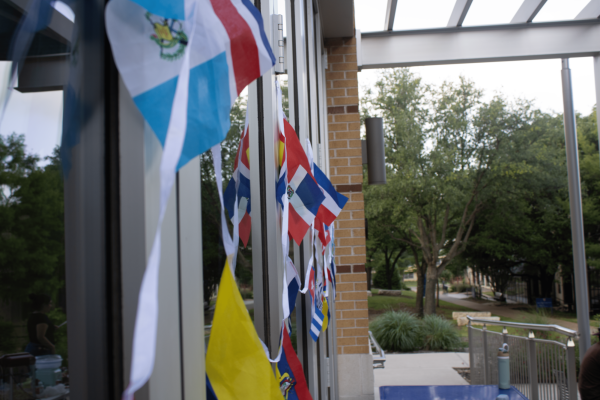

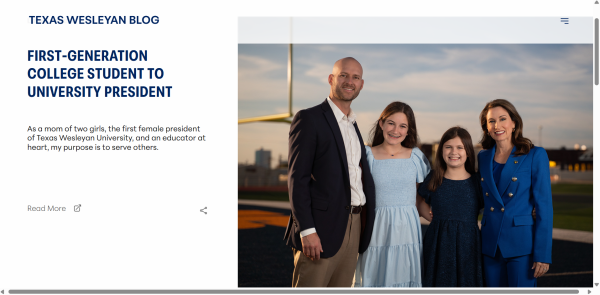
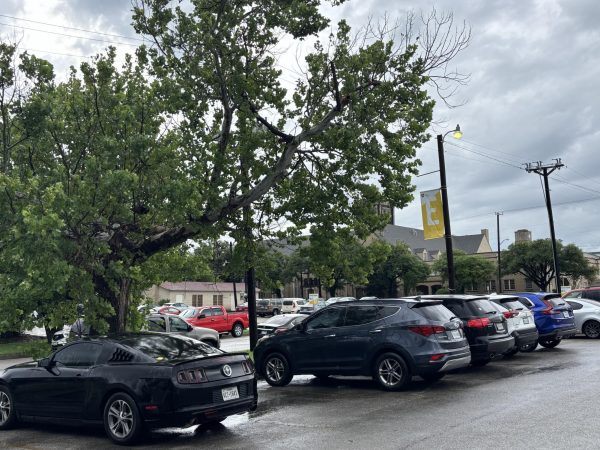
![Hunter Heart (center), the play's lead, rehearses a scene alongside other student actors. [Photo courtesy Jacob Sanchez]](https://therambler.org/wp-content/uploads/2025/04/thumbnail_IMG_8412-600x408.jpg)

